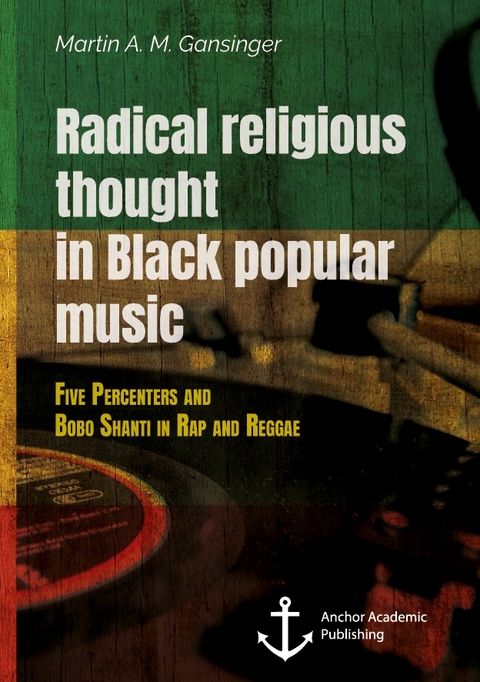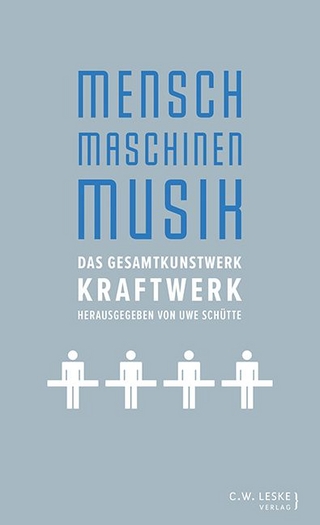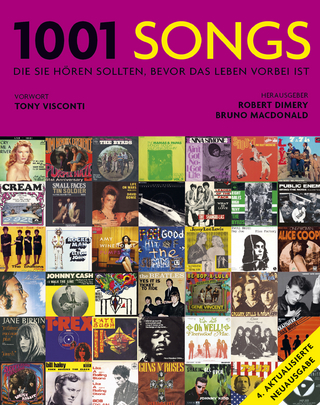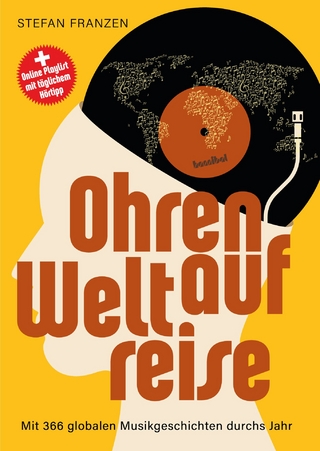
Radical religious thought in Black popular music
Anchor Academic Publishing (Verlag)
978-3-96067-198-5 (ISBN)
Apart from providing a possible answer to this question, the historical shift of Bobo adherents from shunned extremists to firmly anchored personifications of authenticity in mainstream Rastafarian culture is being emphasized. A multi-layered comparative case study attempts to shed light on the re-contextualization of language as well as expressed dogmatic perceptions and symbolism, attitude towards other religious groups and aspects of ethnic discrimination. Further analysis includes the visibility of artists and their references to practical and moral issues directly derived from two obscure ideologies that managed to conquer airwaves and concert halls.
Dr. Martin Abdel Matin Gansinger (born 1979 in Austria) studied Communication Science and Political Science at the University of Vienna. He published works on communicative aspects of HipHop and Free Jazz and conducted long-term field research on music and traditional culture in Ghana, Morocco and Cyprus. Next to his professional experience as a journalist and PR coordinator in the music industry he is currently holding the position of Assistant Professor and Head of Department/Radio, TV & Cinema at Girne American University.
Text Sample: Chapter "Expressed doctrine and ideology among Bobo Shanti artists: Similarities and differences in regard to Five Percenter Rap":A) Re-interpretation of terminology and the establishment of counterknowledge: Burning you with Words, Power and Sound:Word, sound and power is Jah way / Blessings haffi shower when we hear Jah name.Word, Sound And Power (Lutan Fyah, 2008a). By comparing the religious doctrine and terminology of Five Percenters and Bobo Shanti, several similarities can be discovered. Both groups came up with original terms for talks, discussions or teachings as central elements for the dissemination of their traditions and doctrines, for instance - which are referred to as reasoning among Rasta circles and building in Five Percenter terminology. One might as well attest some similarity in the way that Five Percenters refer to putting facts on the table in a discussion as dropping bombs and the use of the Bobo's frequently invoked fire bu(r)n! as a means to express their rejection of information stemming from the imperial powers as lies. That would also imply the superior perceived religious doctrine of the Rastas based on the Old Testament as compared to the King James version of John Paul inna di Vatican, which is symbolically set on fire regularly by adding the aforementioned rhetorical term in Bobo ceremonies or performances of Bobo-related artists. Capleton a.k.a 'The Fireman', who originated the music that later on got labeled as Fire Reggae (Zips, 2011, p. 151) by frequent mentioning of the term argued that the expression - alongside the equally popular judgment! - is as well prominently featured in the Old Testament and standard repertoire of a typical Sunday sermon in any Jamaican church (Cooper, 2005, p. 9).In a similar way, Bobos tend to avoid the term Africa - which is deemed a manipulative name, introduced by white colonial powers to separate them from a glorious past as Ethiopian kings or even Black Israelites, the original inhabitants of the Biblical Jerusalem (Dorman, 2016) - to define their origin. Black Muslim movements such as the Moorish Science Temple, the Nation of Islam and also the Five Percenters (Knight, 2013, p. 241) have applied a very much related empowering strategy - with the latter group insisting on being Original Asiatic Black Man or hailing an even more glorious past as nothing else than Gods of the Universe (Curtis & Sigler, 2009). While in Bible-based Rasta terminology, Africa is referred to as Zion - the Promised Land - and the corrupted colonial system as Babylon or Rome in return, Father Allah's re-defining and symbolical charging of space by turning Manhattan and Harlem into Mecca, Brooklyn into Medina, New Jersey into New Jerusalem or Queens into The Desert (Knight, 2013, p. 63) is clearly grounded on socio-historical influence of Islamic origin.Obviously, this consistent re-interpretation of words does not stem from random occurrence but is systemetically applied out of a strong awareness for the manifold meanings and implications enclosed in words as symbols and tools for the continuation or either questioning of power structures and distributions. Rastas strongly believe in the relevance of words, power and sounds (Blatter, 2008, p. 19), which is frequently and prominently referred to by Reggae-artists, from recent performers like Sugar Roy & Conrad Crystal (2014) or the iconic Bobo deejay Sizzla Kalonji on his more than seventy full-length releases (Sizzla, 1997b; 2002a; 2007a).Full time Babylon realise / Sizzla is di element of surprise / And wicked heart, I must put you down / Burning you with words, power and sound.No Other Like Jah (Sizzla, 1997b).That idea traces back to ancient African concepts such as Nommo, referring to the power of the spoken word and the positive or negative forces it can bring into existence (Hamlet, 1998; Yancy, 2004; Walker & Kuykendall, 2005). Or as Leach (1966, p. 407), commenting on traditional ritualistic se
| Erscheinungsdatum | 04.03.2022 |
|---|---|
| Sprache | englisch |
| Maße | 155 x 220 mm |
| Gewicht | 282 g |
| Themenwelt | Kunst / Musik / Theater ► Musik ► Musikgeschichte |
| Sozialwissenschaften ► Soziologie ► Allgemeine Soziologie | |
| Schlagworte | Black Music • Black Muslim movement • Case study • Cultural Studies • dancehall • Five Percent Nation • Hip Hop • music sociology • Rastafarian culture • Rastafarian Studies • Religious radicalism |
| ISBN-10 | 3-96067-198-9 / 3960671989 |
| ISBN-13 | 978-3-96067-198-5 / 9783960671985 |
| Zustand | Neuware |
| Haben Sie eine Frage zum Produkt? |
aus dem Bereich


